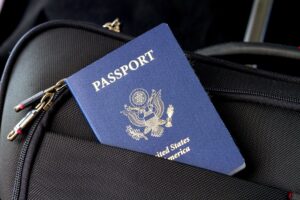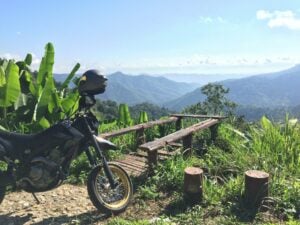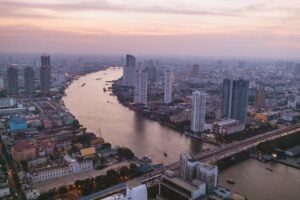Few places on Earth have an allure as vibrant and unique as Thailand’s. A visually stunning country in the heart of South East Asia, Thailand roughly measures up to California in terms of landmass, but its countless islands and geographical diversity make it feel like several worlds in one.
From the energy of Bangkok to the preciously lush jungles surrounding Chiang Mai, down to the picturesque shorelines of the South, Thailand has significantly more than something for everyone.
But it’s not all Pad Thai and white sand beaches. Thailand is after all still a developing country, and sometimes it shows.
For most expats like us, the disadvantages are easily balanced by all the upsides of living in Thailand, but depending on your circumstances, lifestyle and comfort zones, it’s possible that it simply may not be the life for you.
Whether your one-way ticket is booked or you’re just in desperate need of several weeks away from your home country, knowing what to expect from Thailand’s interesting blend of ups and downs is a big step toward arriving prepared. Fortunately, expat living in the Kingdom formerly known as Siam is our specialty.
Let’s lay out all you need to know to experience the positives of living in Thailand while avoiding the downsides.
Table of Contents
What’s Really Special About Thailand
At the core of Thailand’s uniqueness is a rare historical achievement: unlike all of its neighbors on the Indochina Peninsula, the Kingdom was never colonized.
While former King Chulalongkorn strategically Westernized Thailand’s government, urban areas, and social systems in order to secure its independence, Thailand avoided the European reprogramming that’s now a permanent feature of so many former colony nations.
So while on the surface Thailand’s urban areas can appear similar to many other bustling, developed cities, what happens within them and its more remote areas is often very much not.
Why Moving to Thailand is Appealing
The Land of Smiles
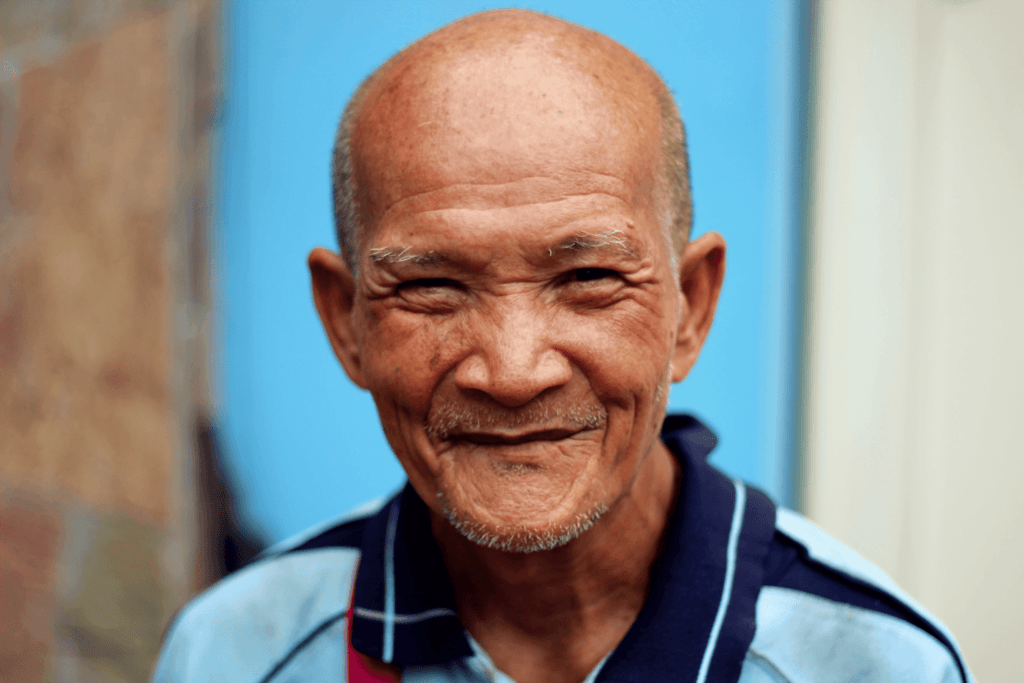
If you’ve ever seen a photo of a Thai beach, eaten some Thai food, or met a Thai person, chances are you’ve got some solid guesses at where Thailand’s most famous nickname comes from. What Thailand looks like in reality is pretty close to what most people imagine when dreaming of “paradise” as a concept.
Thai people tend to work to live, versus living to work, and they tend to be quite skilled at taking life’s little bothers in stride.
The Pursuit of New Adventure

If you’re from North America, Thailand may physically be the most foreign country you can go to. That stat is enough for some. For everyone else there is a near infinite amount to discover across wild national parks, ancient ruins surrounded by stunning gardens, sprawling Buddhist temples and colourful markets.
And that’s just during the day. Thailand after dark is a draw all its own with must-see night markets, full moon parties and a famously wide variety of nightlife options.
You won’t have a hard time finding multiple expats or visitors here who will tell you that coming to Thailand, for them, was like being set free.
The Good Life—On a Budget
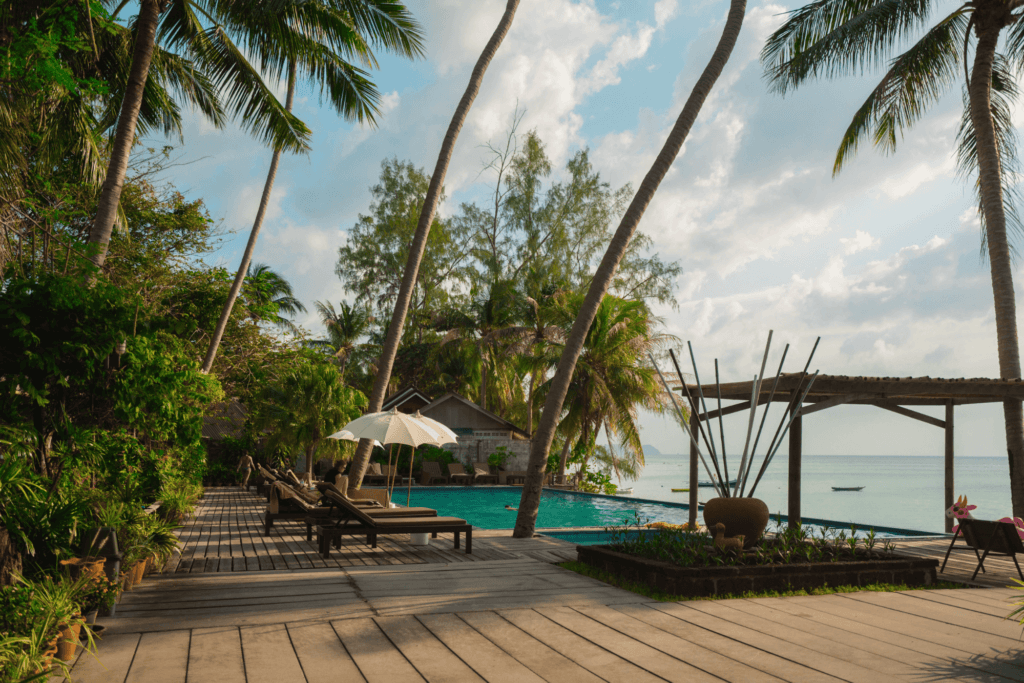
Ever dream of taking a magnificent holiday to one of those picturesque beach resorts that make up 80% of Instagram’s #travel posts? Did that dream wither and die once you began estimating how much money you’d need?
While finding a transcontinental flight for cheap may be a challenge, living in Thailand removes that obstacle, leaving a boundless sun-drenched escape within permanent reach.
Domestic tourism in Thailand is cheap and easy. Regional airlines like AirAsia and VietJet regularly offer domestic flights between popular tourist destinations for under USD $40, nonstop, round-trip.
When you arrive, finding a beautiful, well-situated accommodation for about the same price as a cheap lunch for 2 is reasonable here. So is getting the best massage of your life at the $10/hour massage shop next door.
The Breakdown: Thailand Pros and Cons
This all sounds pretty good so far, huh? I know—too bad I don’t make any money from convincing people to live in Thailand. But seeing as how that is sadly true, I’m going to give you the ultimate unbiased analysis of both sides.
What’s to Love: The Pros of Living in Thailand
Thai Culture & People
One of the first things you’ll notice when you arrive in Thailand is that it’s full of genuinely friendly people.
Thai people are warm, welcoming, engaging and helpful—to locals and foreigners alike. Thailand is a place where if you get lost or look overwhelmed at a bustling local market in Bangkok, someone is more likely than not to go out of their way to help you out. It’s wonderful.
Cost of Living
Do you live in a big city in a Western country? If so, take your monthly rent and divide it by 3. That’s a good approximation of what you might spend on a comparable flat in the city centre of Bangkok.
Delicious, hot, high-quality Thai cuisine can be had morning, noon or night in any corner of the country for THB 50-80 ($1.50 – 2.40). And that’s not all. The Thai baht, at 1/34th the value of the US dollar, just goes much further here, especially for consumer staples.
More Cost Examples
- A doctor’s visit at one of the top private hospitals (with no health insurance) will cost between THB 1000 – 1700 ($30 – 50) total.
- Round trip domestic flight: THB 1200 – 1700 ($35 – $50)
- A prime time ticket to the latest Hollywood movie will run around THB 300 ($9)
- 25GB of 5G monthly mobile data can be had for THB 563 ($16.60) per month
- 500Mbps of fiber optic home internet costs THB 750 ($22) per month
Cost & Quality of Medical Care
I know we just did the cost of living rundown but this paradox needs its own segment. Yes, healthcare and medical treatment in Thailand are cheap. But very much unlike in many other developing nations, the standard of care is impeccable.
In fact, plenty of foreigners make trips to Thailand specifically to take advantage of this. And why wouldn’t they, when most doctor’s consultations and diagnostic tests tend to cost around the same as the health insurance copay for the same services in the west.
Meanwhile, health insurance in Thailand is reasonably priced and can further protect you in the event of something serious. Plus, fluent English is widely spoken amongst nearly all doctors and at private hospitals, most nurses as well.
Thai Food
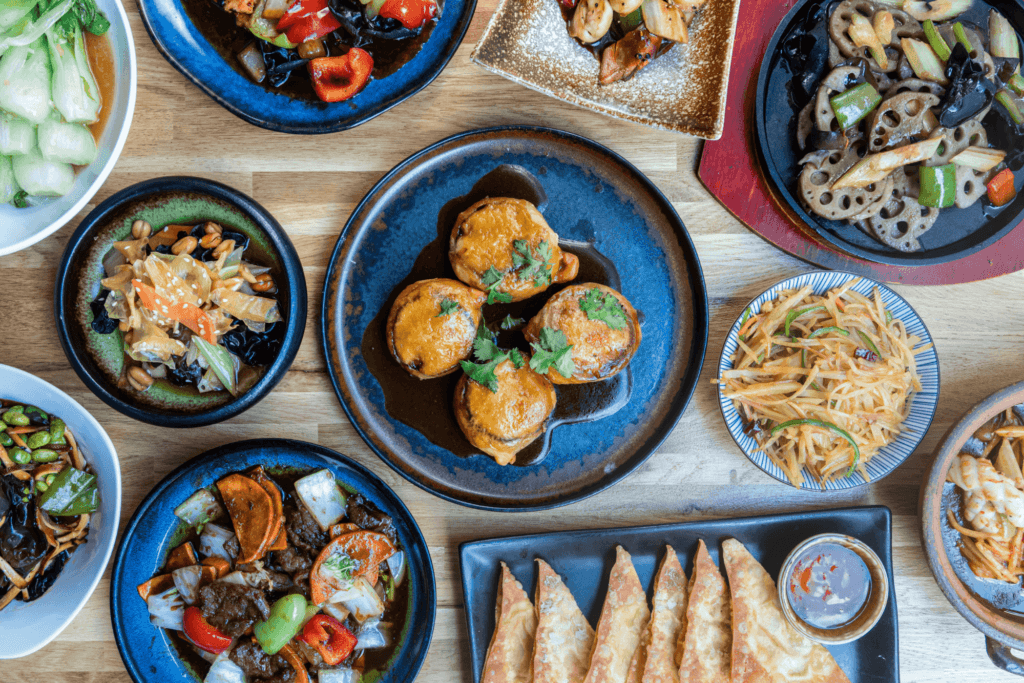
For most expats living in Thailand, one thing they could never give up is the food. Sometimes spicy and often based around mixtures of vegetables, meat and either rice or noodles, Thai food is unique, diverse and above all, delicious to eat.
Street food all over Thailand is usually homemade and high-quality, and especially in Bangkok, makeshift restaurants tend to pop up in tiny alleys where groups of Thai friends often gather to share a meal. Even families rely on local food vendors, with traditional Thai housing in cities often entirely foregoing a kitchen.
Modern Conveniences
While rural Thailand can quickly become quite remote and disconnected, urban areas like Bangkok and popular tourist destinations like Chiang Mai, Phuket, Hua Hin and Pattaya feature everything you’re used to from back home—often more.
From food delivery and ride-hailing to the rapidly expanding network of public transport links connecting Bangkok, you’ll never feel stuck or hungry here.
You can even hail a motorbike taxi to zip you through rush hour traffic at a fraction of the price of a normal ride. Rapid, affordable messenger services are also commonplace—something other countries tend to lack.
Location & Landscape
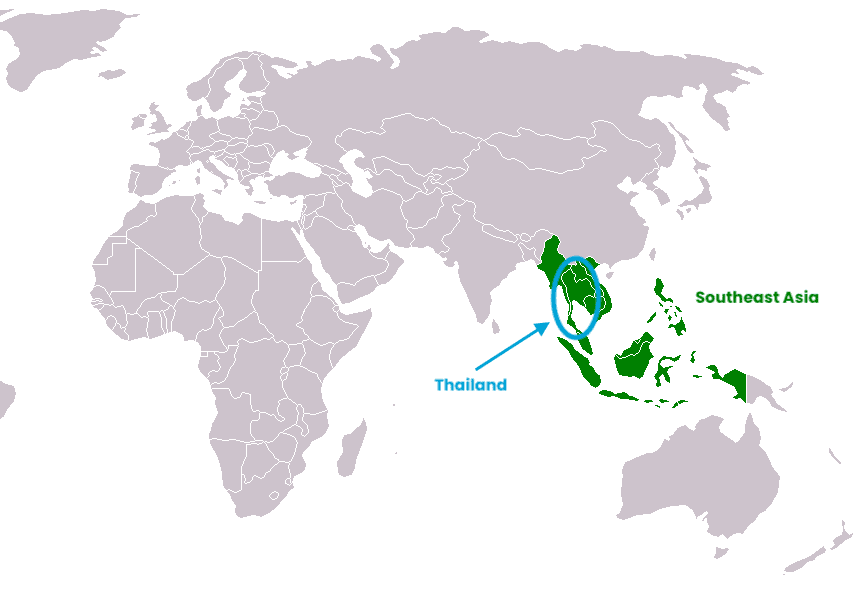
Thailand’s little slice of Earth offers a lot to like. Not only do its physical features showcase natural beauty unrivaled by most western countries, they also range from untouched beaches through modern cities and ancient ruins to expansive valleys and lush jungles.
It’s definitely not all about Bangkok in this beautiful country (although modern Thai architecture is also a thing of beauty). Plenty of expats live in Northern Thailand as well as on the beaches down South.
Thailand’s position within South East Asia makes it the perfect home base for an avid traveler, as the country shares land borders with Laos, Myanmar, Cambodia and Malaysia. Indonesia and Vietnam are a quick jump, as are Singapore and the Philippines.
LGBTQ+ Acceptance
Thailand has a reputation for being accepting of people of all walks and backgrounds, thanks in part to its Buddhist-influenced culture. As a reasonably safe country in general, Thailand is home to flourishing communities of queer and gender-diverse expats and local Thais alike.
It’s fair to say you’ll likely never be harassed or targeted here over your sexuality or gender expression. Those who may not understand or approve simply keep their opinions to themselves and will still treat you with respect. Imagine that.
The Weather
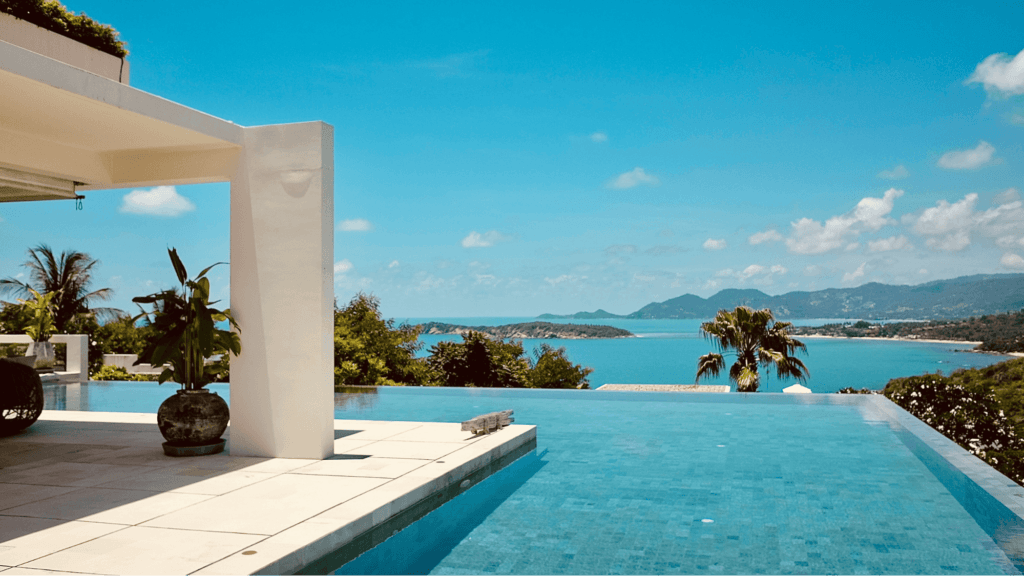
Need I say more? Tropical Thailand boasts year-round sunshine, blue skies and warm breezes. It’s perpetual summer, and living in Thailand means both constant beach weather and a consistent, yearlong sunrise/sunset.
Harder to Love: The Cons of Living in Thailand
Bureaucracy, Government & Thai Law
I could go on about this one for hours—and you’d still be sitting in the queue at immigration (you’re welcome). Unfortunately the Thai government, its processes and logic can leave expats and locals scratching their heads.
Political Unrest is a Recurring Theme
Thailand has seen more political coups than any other modern country in the world, with the most recent military junta toppling the democratic government in 2014. The previous coup in 2006 followed 10 previous non-democratic takeovers in the Kingdom throughout the 20th century.
Each one effectively resets the government and has historically resulted in a rewrite of the constitution tailored to the views of the incoming power. The result is hindered progress and a reduced ability to iterate on legislation, which officials on all sides of the political spectrum agree hurts the country in the long run.

Piles of Printed Paperwork
Preparing prerequisite proclamations of personal plausibility can present prolonged puzzles and propagate peeving pickles—for pedestrian parties, per se.
You heard me.
It’s not exactly a secret that administrative processes in Thailand can run a little on the thorough side. Stacks of individually signed photocopies are your ticket to getting most official things started here, but gathering them definitely doesn’t guarantee a speedy finish.
In Thailand the laid-back vibe doesn’t translate to lax attitudes toward established rules and regulations. When a system works, Thai people tend to stick to it, and in many ways that’s a good thing. Integrity is a core value and people here want to know both who they’re servicing and that they’re doing their jobs correctly.
Having said that, it’ll also save you a lot of time and potential headache to work with an agent or company that’s gotten all of the core service setups down to a science. As an expat, your daily life definitely shouldn’t be dominated by bureaucracy. Thankfully for the hundreds of professionals who live and work here legally through Iglu, they get to skip almost all of it.
The Visa Maze
The Land of Smiles unfortunately doesn’t extend to your local immigration office.
Getting a tourist visa is easy enough, and Thailand even allows citizens of many countries a 30-day visa-free entry. But if living in Thailand is your goal and you want to work legally here as well, things can get much more complicated.
Obtaining a work permit typically requires being employed, in advance of your arrival, by a Thai company which is strictly limited on the number of foreigners it can employ.
Retirees have the “Non Immigrant O” retirement visa, but it’s not work-eligible and requires a significant amount of retirement savings to be kept in a Thai bank account. There are a few other options like the education visa and marriage visa, but almost any type of long-term visa requires navigating a complex, meandering path.
The Language Barrier
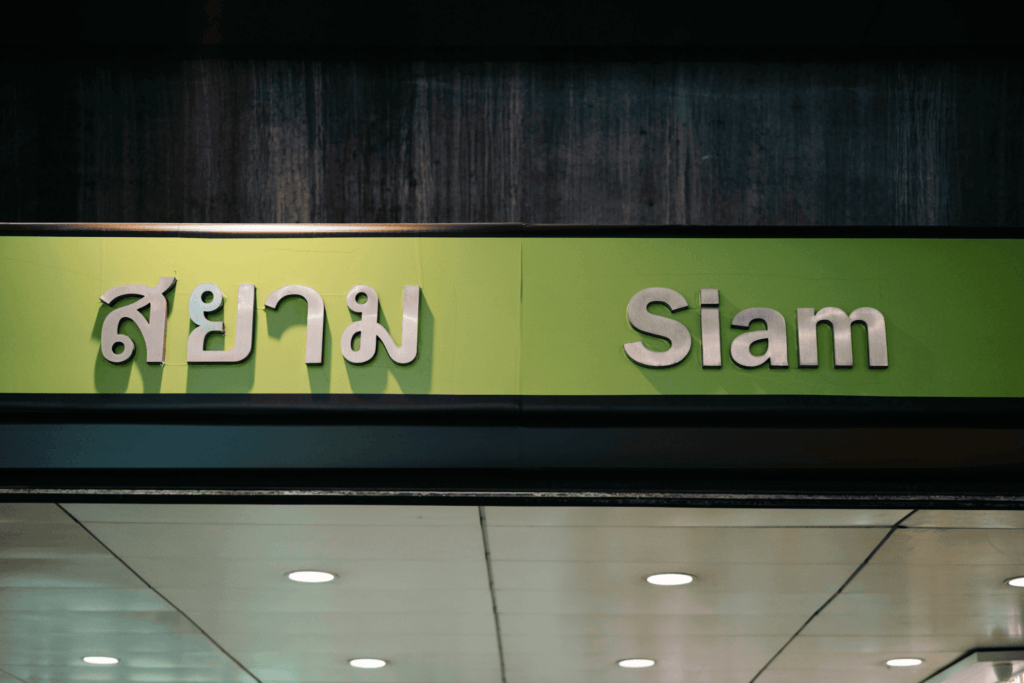
Thai is an interesting language that can be quite fun to speak once you learn it. It is, however, very, very different from English.
To speak Thai you first need to get acquainted with tonal languages, a concept that can pose a huge challenge to most foreigners who speak English, which only uses tonal changes to denote intention, emotion or questions.
Thai has its own alphabet and exactly zero roots in Latin. It’s still read from left to right, but with 44 consonant letters and 15 vowels plus 4 tonal diacritics, it doesn’t exactly provide a shortcut to learning the language.
Fortunately most Thais speak at least a little English, especially in areas central to Thailand’s tourism industry like Bangkok, Chiang Mai, Phuket, and Pattaya. But English fluency is rare, so you’ll eventually need to conquer (at least some of) those 59 characters if living in thailand is in your future.
Social Issues
Wealth Gap
Behind the smiles are some deep-rooted issues that really highlight why Thailand is still considered a developing country.
The distance between rich and poor in Thailand is excessive and problematic. In Bangkok you may live in a modern highrise situated right next door to a dilapidated slum. The amazing deals expats find in markets will often amount to large sums of money for the average local family. If the US has a 1% problem, in Thailand it’s probably more like 0.01%.
Tourist Scams
This one is more of a downside to tourism in general than to Thailand as a country, but nonetheless it is an issue for visitors and newcomers. The upside? You can learn your way out of danger pretty easily, and few if any schemes ever pose a physical risk to anyone.
Typically taking the form of cons and crimes of opportunity, the key to avoiding a scam is usually employing sound common sense and a bit of conscious preparation. Highly-populated tourist areas—especially those around Bangkok’s red light districts—are hotspots for pickpockets, as one example.
For another, if you hail down a tuk-tuk and the driver offers to get you an amazing deal on some high-value items because he has connections at the local market, just thank him and politely decline.
Another benefit to actually living in Thailand versus just stopping by for a visit is that after around a month or so the odds of any seemingly novel offer actually persuading you to become vulnerable to a scam are essentially reduced to zero.
LGBTQ+ Rights
Whereas Thailand and especially Bangkok have earned reputations for being a safe haven for LGBTQ+ people, it’s still on its way in a legal sense. While Thailand proudly has no laws against same-sex relations and a promising bill was introduced in 2020 aiming to make Thailand one of the first Asian nations to formally recognize same-sex partnerships, gay marriage has not yet been legalized.
While the country is a leading destination for transgender surgeries and living in Thailand as a trans person is considered very safe due to its inclusive and non judgmental culture, official legal provisions for trans and gender-divserse citizens are not yet at the same level as the nation’s encouraging social sentiment.
While there are some key rights the country has yet to adopt despite the safety and respect it offers everyone, as an expat there isn’t much that’s noticeably absent in practice. Meanwhile, draft legislation and government discussions introduced in recent years have shown promising momentum in this area, and some believe Thailand is on track to become a pioneer for LGBTQ+ rights in Southeast Asia.
Road Safety
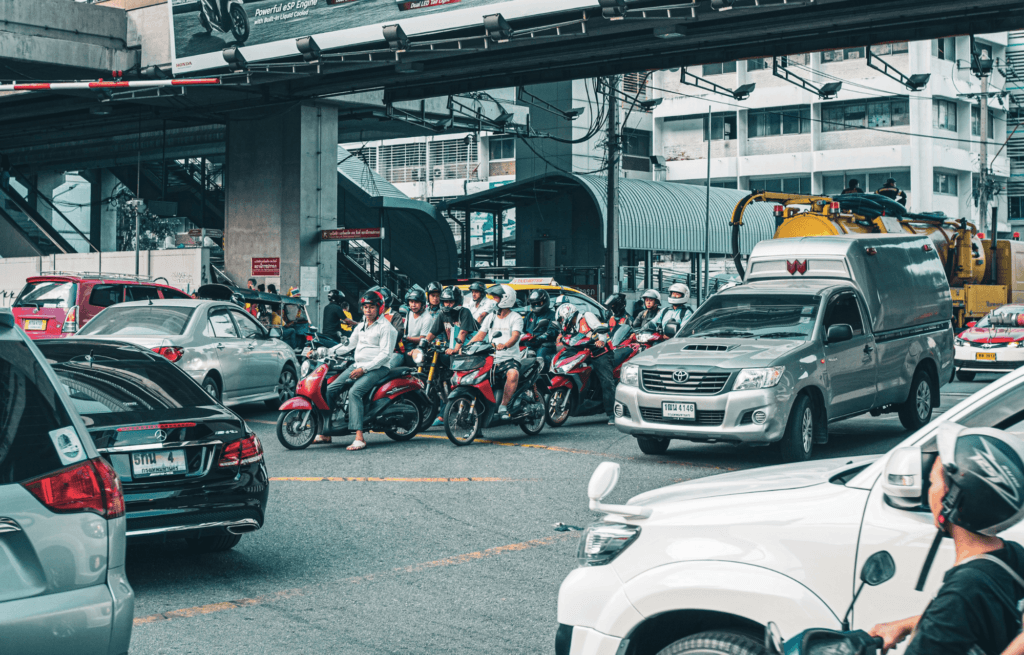
Bangkok in particular is as famous for its dangerous roads and bad traffic as it is for its fun nightlife and interesting people. While the quality of larger roads in Thailand can actually be quite good, nobody would describe what tends to occur on them as “safe driving.”
In Bangkok, the rules of the road are more like “helpful hints,” and you can see this in practice at any intersection. Speed limits are rarely enforced and even traffic lights are constantly ignored. Driving under the influence—of both alcohol and hard drugs—is a tragically common occurrence.
The Weather
We talked up the good side of this one up top, but there is a darker side to Thailand’s weather. Rainy season will often quite literally put a damper on your afternoon between May and October—no short stretch.
While it’s milder from June through August, its thunderstorms are notoriously spontaneous. One minute you’ll be watching the Chao Phraya glisten with infinite sunlight—the next, you’ll be taking shelter with your motorbike taxi driver as the skies dump a river’s worth of rain onto your head.
Truthfully the rain can be quite lovely to watch, assuming you’re not outside. And there’s no better way to gain an appreciation for rainy season than to spend time in Thailand’s sun. With average temperatures hovering between 30-36º C, the heat here is no joke, and it’s not for everyone. Air conditioning will definitely be a major chunk of your electric bill.
Recap: Living in Thailand Pros and Cons
Pros:
- Warm, welcoming, helpful people
- Inexpensive, excellent healthcare
- Low cost of living
- Delicious, cheap food
- The conveniences of home and more
- Central to South East Asia
- Gorgeous beaches, mountains, and jungles
- LGBTQ+ acceptance
- Overall a very safe country
- Perpetual beach weather
Cons:
- Politics, bureaucracy and laws
- Cumbersome visa system
- The language barrier
- Wealth gap and humanitarian issues
- Tourist scams
- Bangkok traffic and road safety
- Occasionally poor air quality
- Rainy season and heat
Are you a digital professional interested in living & working in Thailand?
That means more opportunities for new expats who want to base themselves in one of the most desirable locations on the planet. If you are interested in employment opportunities with Iglu, contact us now or send us a job application.


